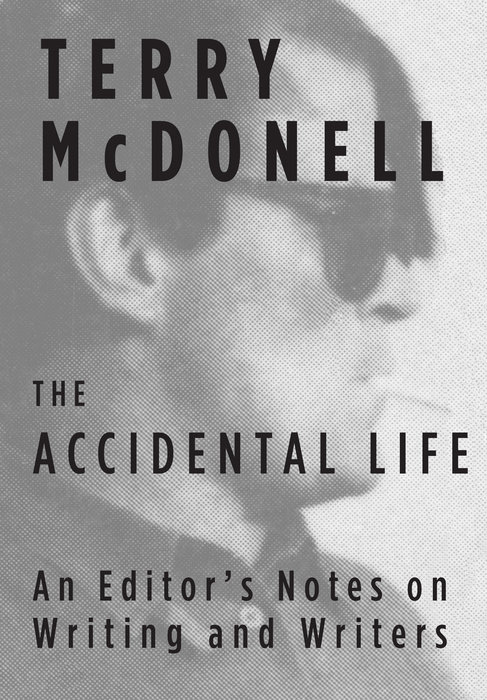The Accidental Life: An Editor’s Notes on Writing and Writers
by Terry McDonell
reviewed by Erik Hage
Since the 1970s, Terry McDonell has been a prominent editor, shaping such magazines as Rolling Stone, Outside, Esquire, Men’s Journal, and Sports Illustrated. He has edited and befriended such fabled writers as Hunter S. Thompson and George Plimpton, working in that hinterland where the ambitiously literary and the journalistic met and bled into each other. Far from being a relic of a bygone era, however, McDonell is more of a Zelig: long omnipresent yet somehow inconspicuous, cruising the glossy glory days of magazines—and then miraculously averting obsolescence when the Internet yawned open and swallowed so many.
In fact, under McDonell, Sports Illustrated enjoyed leaps in digital revenue. Once a player in the high-word-count world of the New Journalism, he adapted to the click-baited attention economy of the Web as well. As he tells it: “[B]efore you feel too sorry for the old newsstand stars … note that in an ever-fractioning media universe of aggregation and crypto-plagiarism it’s both easier and more fun to manipulate traffic than it ever was to game the old newsstands.”
A good portion of The Accidental Life: An Editor’s Notes on Writing and Writers is steeped in a deeper and (perhaps) less cynical past, however, and McDonell writes as one imagines a great editor should, with incisive economy, evoking personalities in swift, non-showy strokes. Of the stuffy and patrician George Plimpton, he notes, “[I]t wasn’t his privilege that struck you; it was his curiosity,” and Plimpton’s questions “were like trampolines, a technology he admired. They bounced you higher—to the next question.” Inside the home of the late naturalist and writer Peter Matthiessen, McDonell spies “books everywhere, sorted into what seemed like small, discrete libraries of his interests.” Meeting up with Kurt Vonnegut, McDonell conjures the “big, loose-boned walk” of the author, who was “a little unbalanced in his overcoat, handsome but tousled, with long curly hair and a heavy mustache that sometimes hid his grin.”
The Accidental Life is not a memoir really, but an episodic collection of remembrances and observations, all separately framed with a title, a word count, and an -ENDIT- slamming the door on each dispatch. Most titles are names of people he has worked with, but others—“Writer’s Block (157),” or “Ambition (977),” remind us we are in the world of the editor.
The accounts of old-school boozing and drugging among the literati of this world, and of Hunter S. Thompson in particular, are a bit tired and apocryphal, and there is some masculine brio to cut through at times. Nevertheless, McDonell seems acutely aware of the male universe he inhabits, wryly recalling at one point how Outside magazine “incubated out of Rolling Stone’s ‘Men’s Issue.’ (As if every issue of Rolling Stone wasn’t already . . . )” Elsewhere, he highlights the fact that we live in a more enlightened time, in which the most respected mastheads feature “many women executive editors, managing editors, Web editors, mobile editors, art directors, copy chiefs, research editors, [and] photo editors.”
There is, in fact, a lot of heart and graciousness in The Accidental Life: McDonell is a sensitively attuned appreciator of the writers with whom he has worked—he recites their passages and drops the plummet just far enough into their psychologies to reveal compelling glimpses without seeming exploitative. Of radical environmentalist Edward Abbey, McDonell observes, “He hid the craft but never the beauty of the words—words like chaparral and blue columbine and mosquito—that he set in place, all in the voice of an outraged populist poet.” McDonell’s insights have a deceptive lightness of touch, and his own prose is often in service of others’.
For example, novelist Thomas McGuane once wrote a lengthy Sports Illustrated piece for him on snook fishing, an article that surprisingly culminated with thoughts about clinical depression. “This was the kind of hairpin turn he was so good at,” McDonell notes, turning to McGuane’s own passage, in which the novelist wonders why people insist on “discussing depression, gnawing the topic of their own malaise like dogs on a beef knuckle. My experience of it was a disinclination to speak at all. I had the feeling of being locked in a very small and unpleasant room with no certainty of exit.” McDonell offers the kicker himself: “That’s not writing you edit.”
This humility and appreciation guides the best parts of The Accidental Life, which is an invaluable book about magazines, writing, and working with writers. And the grounded cognition of discussing these themes through personalities and relationships gives this work its beguiling resonance. “The editing jobs I had were never only about the words,” McDonell muses without seeming one bit disingenuous. This statement reveals the heart of this book, as does his declaration, “I had only three rules: Force nothing. Be clear. You can always go deeper.”
Published on December 20, 2016

